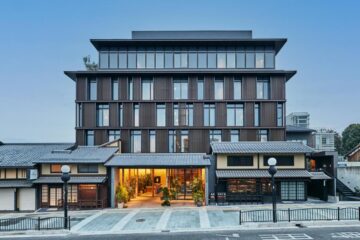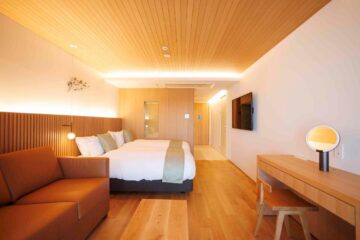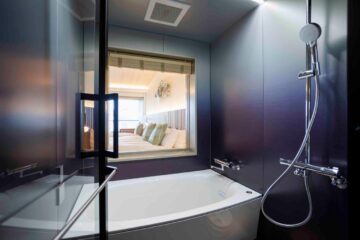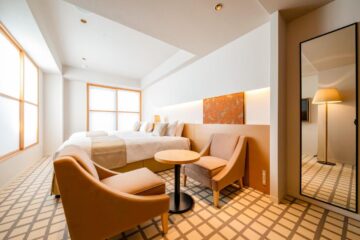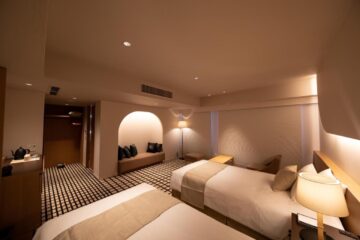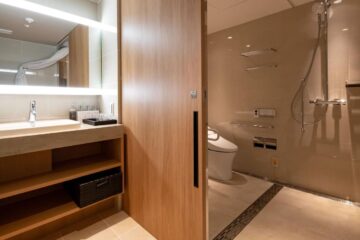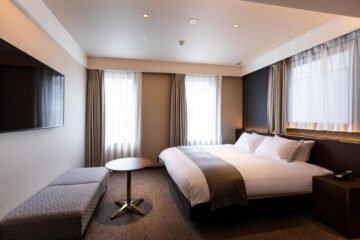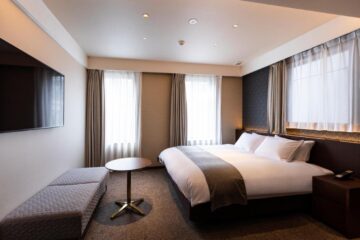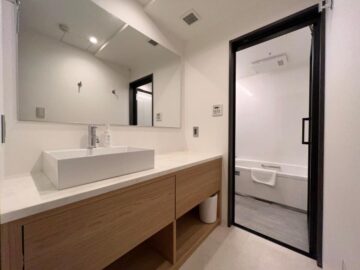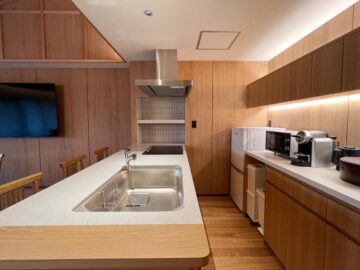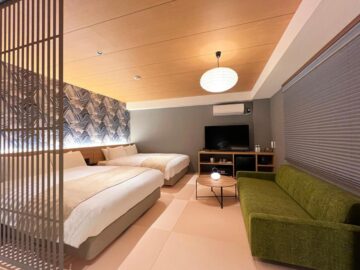Kyoto offers a peaceful and inspiring environment for digital nomads, blending traditional Japanese culture with modern amenities. The city has a growing number of co-working spaces and cafes, especially in areas like Downtown and Gion. While internet speeds are fast and reliable, the cost of living is lower than in major cities like Tokyo. Public transportation is efficient, making it easy to explore Kyoto’s beautiful temples and natural landscapes. The calm atmosphere and cultural richness provide a unique work-life balance for remote workers.
Nomad Score: 7/10 ・ Cost of living: $2300/month ・ Internet speed: 670 Mbps
▶ Nohga Hotel Kiyomizu Kyoto – Double Room
▶ Gion Elite Terrace – King Room with Balcony
▶ The General Kyoto Shijou Shinmachi – Double or Twin Room
▶ Yoin Hotel Kyoto Gion – Deluxe Double Room
▶ Rinn Gion Shirakawa – Superior Twin Room
This guide will help you enjoy Kyoto’s peaceful and culturally rich environment as a digital nomad, offering a balance of work and exploration in one of Japan’s most iconic cities:
1. Internet and Connectivity
- Wi-Fi: Kyoto has reliable high-speed internet in most areas, though it may not be as widespread as in Tokyo. Many cafes and public areas provide free Wi-Fi, and most accommodations, co-working spaces, and cafes offer strong connections.
- Mobile Plans: SIM cards from providers like SoftBank, Docomo, and AU are available for purchase, providing 4G/5G coverage. You can get prepaid SIMs at the airport or major electronics stores like Bic Camera.
2. Co-working Spaces
Kyoto is seeing an increase in co-working spaces catering to freelancers and remote workers:
- Impact Hub Kyoto: A well-known space in the city offering a collaborative community, events, and flexible membership options.
- MTRL Kyoto: A stylish, creative space with a focus on designers and makers, located near Gojo station.
- Kyoto Makers Garage: Great for digital nomads with an interest in design, tech, and creativity, offering an innovative work environment.
- Work Work Kyoto: A smaller space with a minimalist design, perfect for those seeking a quieter environment to focus.
3. Cost of Living
- Accommodation: Kyoto is more affordable than Tokyo or Osaka, though it can still be pricey in popular areas like Gion or Downtown Kyoto. Rent for a one-bedroom apartment can range from ¥70,000 to ¥150,000 per month. Cheaper options can be found in suburbs like Yamashina or Fushimi.
- Food: Kyoto offers a wide range of dining options, from budget-friendly ramen and sushi spots to traditional kaiseki (multi-course) meals. You can eat well for ¥500–¥1,000 at casual restaurants or buy fresh ingredients from local markets like Nishiki Market.
- Co-working: Monthly co-working memberships typically range from ¥10,000 to ¥30,000, depending on the location and services.
4. Where to Stay
- Downtown Kyoto (Shijo/Kawaramachi): Central and vibrant, this area offers great access to co-working spaces, cafes, and shopping. It’s also close to major tourist attractions.
- Gion: Famous for its historic architecture and traditional atmosphere, Gion offers a unique cultural experience, though it may be more expensive and less modern than other areas.
- Fushimi: Known for its quieter, more residential vibe, it’s a bit further from the center but more affordable and close to temples and shrines.
- Yamashina: A more suburban area with affordable accommodation, offering easy access to both Kyoto and Osaka via the JR line.
5. Transportation
- Public Transport: Kyoto has an efficient public transport system, including buses, subways, and trains. The Kyoto City Bus is the most common way to get around, though it can get crowded. A ICOCA card is useful for convenient access to buses and trains.
- Bicycles: Kyoto is a bike-friendly city with many rental options. Biking is a great way to explore the city’s narrow streets and temples.
- Walking: Many key attractions are within walking distance of each other, and the city’s pedestrian-friendly streets make walking a pleasant option.
6. Work-Friendly Cafes
- Weekenders Coffee: A cozy, hidden gem near Gion with a calm atmosphere, perfect for working on a laptop.
- % Arabica: Popular with locals and tourists alike, offering excellent coffee and a relaxing environment in the Higashiyama area.
- Cafe Bibliotic Hello!: A spacious cafe with books and art, offering a unique and quiet environment for remote work.
- Kurasu Kyoto: Located near Kyoto Station, it’s a minimalist coffee shop known for great coffee and a quiet workspace.
7. Visa and Legal Information
- Tourist Visa: Many nationalities can stay in Japan for up to 90 days on a tourist visa. Extensions are not common, so many digital nomads use visa runs to nearby countries like South Korea or Taiwan.
- Freelancer Visa: Japan does not have a specific digital nomad visa, but long-term options include the Business Manager Visa (for entrepreneurs) or securing sponsorship through a local company.
8. Networking and Community
Kyoto’s creative and academic scene offers opportunities for digital nomads to connect:
- Meetups: Platforms like Meetup.com and Facebook groups offer events related to startups, freelancing, and creative work.
- Impact Hub Events: Impact Hub Kyoto regularly hosts events for entrepreneurs, creatives, and remote workers.
- Kyoto Expats Groups: Join expat groups on Facebook like “Kyoto Foreigners” or “Kyoto Expats” to connect with the international community.
9. Local Attractions and Leisure
- Temples and Shrines: Kyoto is home to over 1,600 temples and shrines. Don’t miss iconic spots like Fushimi Inari Shrine, Kinkaku-ji (Golden Pavilion), and Kiyomizu-dera.
- Arashiyama Bamboo Grove: A peaceful natural attraction just outside central Kyoto, perfect for a relaxing break from work.
- Philosopher’s Path: A scenic walking path along a canal, lined with cherry blossom trees, offering a peaceful setting for reflection or a work break.
- Parks: Kyoto has several beautiful parks, including Maruyama Park and Kyoto Botanical Gardens, ideal for a picnic or an outdoor work session.
10. Health and Safety
- Healthcare: Japan has an excellent healthcare system, but as a non-resident, you’ll need private health insurance. If staying long-term, you may need to join the National Health Insurance (NHI) program.
- Safety: Kyoto is very safe, with low crime rates, making it an ideal city for solo travelers. Always follow basic safety precautions, especially in tourist-heavy areas.
Bonus Tips
- Weather: Summers in Kyoto can be hot and humid, while winters are chilly. Spring and autumn are the most pleasant times to stay, with the famous cherry blossoms and autumn leaves drawing visitors.
- Cultural Etiquette: Kyoto has deep-rooted traditions, so it’s important to be respectful when visiting temples, shrines, and traditional areas.
- Language: While many locals speak basic English, learning some simple Japanese phrases can help with day-to-day interactions and show respect for local culture.


